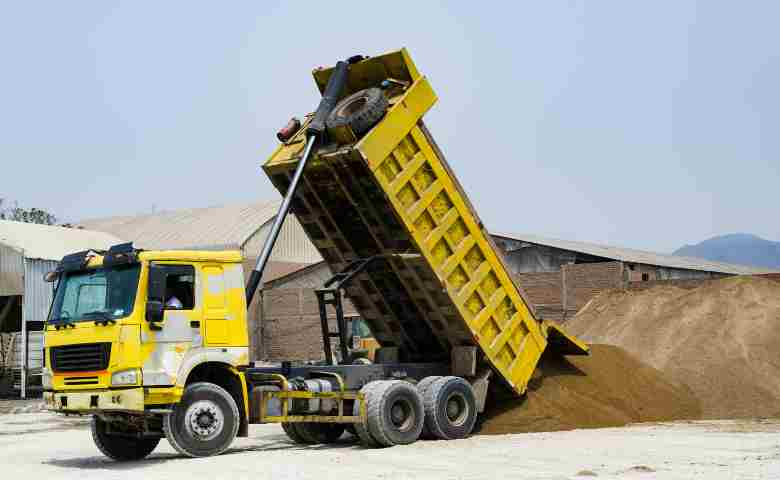Last Updated on January 8, 2025 by Admin
Construction trucks are the workhorses of the construction industry, pivotal in every project. From transporting materials to lifting heavy loads, these specialized vehicles are essential for efficient and safe operations on job sites. This comprehensive guide explores the different types of construction trucks, their specific functions, and the latest trends shaping their evolution. Whether you’re a professional in the field or simply curious, this guide will provide valuable insights into construction trucks’ vital role in building our world.
ConstructionCareerHub App is LIVE — built ONLY for construction careers. Don’t apply with a weak resume.
Get ATS-ready Resume Lab + Interview Copilot + Campus Placement Prep (resume screening, skill gaps, interview readiness) — in minutes & Other advanced features.
Explore Smarter Construction Career Tools →Quick check. Big impact. Start now.
Table of Contents
Understanding the Role of Construction Trucks
What Are Construction Trucks?
Construction trucks, also known as heavy-duty trucks or construction vehicles, are specialized vehicles designed to perform various tasks on construction sites. These trucks are built to withstand the rigorous demands of construction work, such as transporting heavy materials, excavating earth, and assisting in the assembly of structures.
Why Are Construction Trucks Important?
The importance of construction trucks in the industry cannot be overstated. These trucks are essential for the following reasons:
- Efficiency: Construction trucks increase the efficiency of transporting materials and equipment, reducing the time and labor required for construction projects.
- Versatility: There are numerous types of construction trucks, each designed for specific tasks, making them versatile tools on any job site.
- Safety: Modern construction trucks have advanced safety features to protect workers and ensure safe operations.
- Cost-Effectiveness: By automating many tasks that would otherwise require manual labor, construction trucks can significantly reduce operational costs.
Types of Construction Trucks
1. Dump Trucks
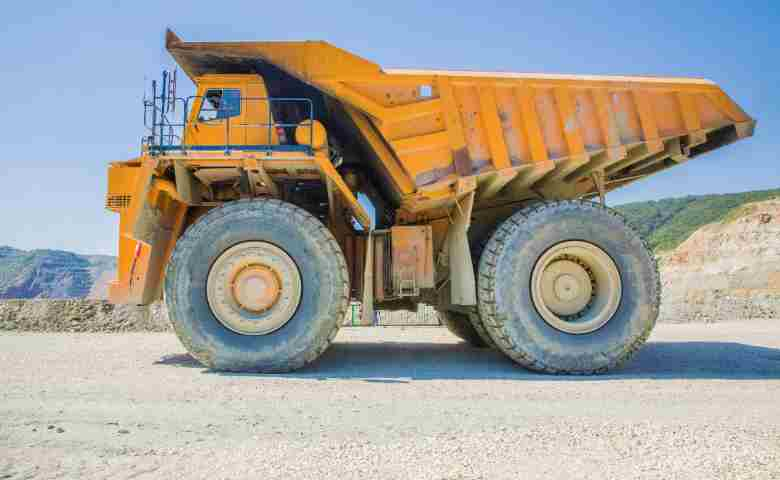
Dump trucks are perhaps the most commonly recognized construction trucks. These vehicles are equipped with a large open-box bed at the rear, which can be hydraulically lifted onto the ground to dump materials, such as sand, gravel, or demolition waste.
Key Features:
- High Capacity: Dump trucks can carry large quantities of materials, making them ideal for large-scale construction projects.
- Versatility: They can transport various materials, including loose materials like soil, sand, and aggregates.
- Durability: Dump trucks are among the most robust construction vehicles built to endure rough terrains and heavy loads.
2. Cement Mixers
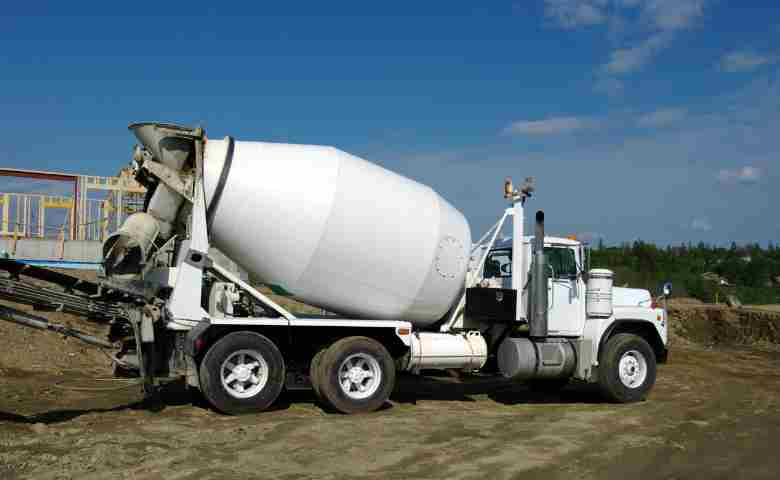
Cement mixers, or concrete mixers, are essential for any construction project involving concrete. These trucks mix cement, water, and aggregates to create concrete, which is transported to the construction site.
Key Features:
- Continuous Mixing: The rotating drum of a cement mixer ensures that the concrete remains in a usable state during transportation.
- Precision: Modern cement mixers are equipped with technology that allows for precise mixing ratios, ensuring the quality of the concrete.
- Mobility: Cement mixers provide the flexibility to mix concrete on-site, which is crucial for projects in remote or hard-to-reach locations.
3. Flatbed Trucks
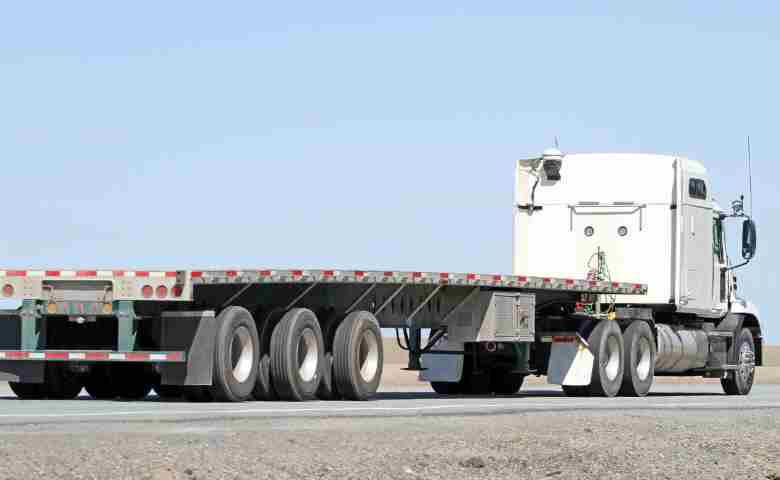
Flatbed trucks are versatile vehicles that transport oversized or irregularly shaped loads that do not fit within the confines of standard truck beds. These trucks feature a flat, open platform without sides or a roof, making loading and unloading materials easy.
Key Features:
- Adaptability: Flatbed trucks can be used to transport a wide range of materials, including steel beams, lumber, and heavy machinery.
- Accessibility: The open design of flatbed trucks allows for easy loading and unloading, even with a crane or forklift.
- Capacity: Flatbed trucks can accommodate large or oddly shaped loads that other trucks cannot handle.
4. Crane Trucks
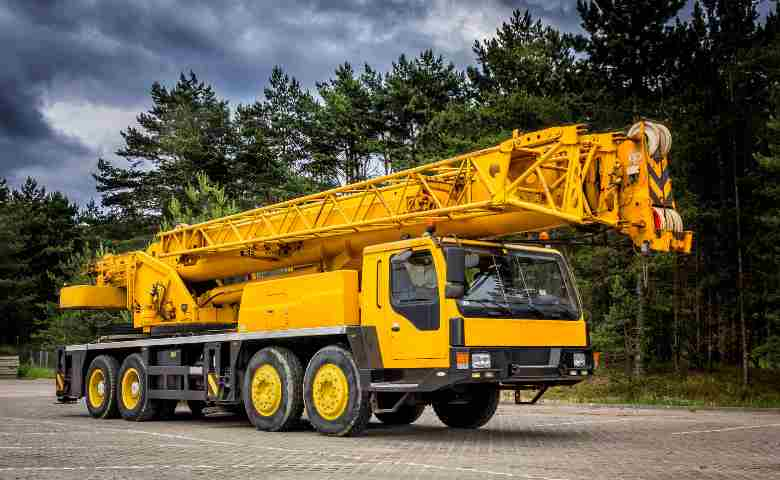
Crane trucks are equipped with a crane, which is used to lift and move heavy materials on construction sites. These trucks are essential for tasks that require the lifting of large objects, such as steel beams, concrete panels, and other heavy materials.
Key Features:
- High Lifting Capacity: Crane trucks can lift heavy materials to significant heights, making them ideal for high-rise construction.
- Flexibility: The crane can be operated from the truck, providing the ability to move materials quickly and efficiently across the job site.
- Safety: Modern crane trucks are equipped with advanced safety features, such as load sensors and stability controls, to prevent accidents.
5. Excavator Trucks
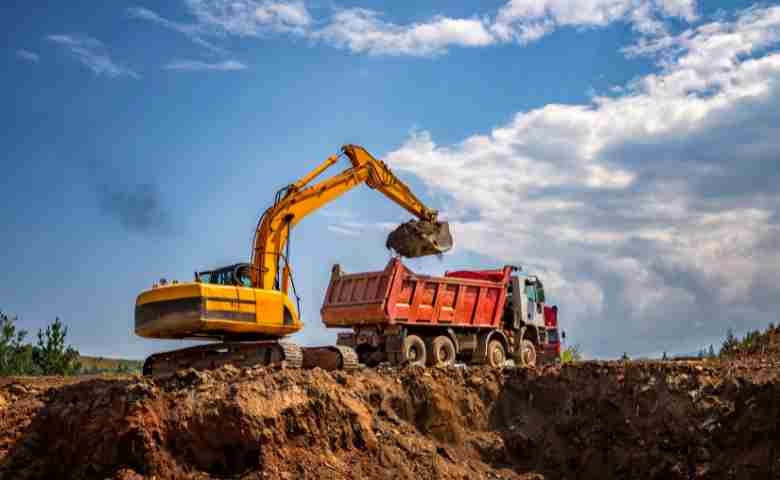
Excavator trucks, or digger trucks, are equipped with a powerful excavator arm to dig trenches, foundations, and other earthworks. These trucks are essential for projects that require extensive excavation.
Key Features:
- Powerful Digging: Excavator trucks can dig through rigid materials like rock and compacted soil.
- Versatility: The excavator arm can be equipped with various attachments, such as buckets, augers, and hammers, to perform different tasks.
- Mobility: Excavator trucks are mobile and can be driven to different parts of the construction site, reducing the need for multiple machines.
6. Bulldozer Trucks
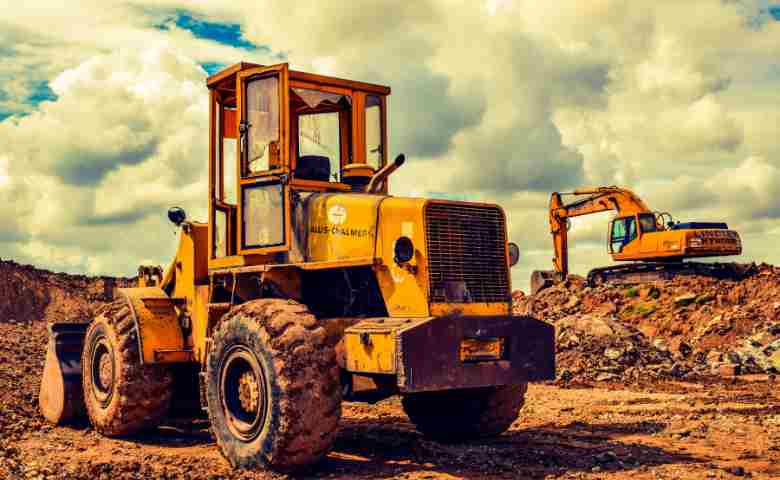
Bulldozer trucks are heavy-duty vehicles equipped with a large blade at the front, used to push earth, rubble, and other materials on construction sites. These trucks are essential for site preparation, including clearing land and grading.
Key Features:
- Powerful Blades: A bulldozer truck’s blade is designed to move large quantities of earth and debris quickly.
- Durability: Bulldozers are built to withstand harsh conditions and are often used in challenging environments like quarries and mines.
- Versatility: The blade can be adjusted to perform different tasks, such as leveling ground or creating embankments.
Latest Trends in Truck Construction
1. Electric and Hybrid Construction Trucks
As the construction industry moves towards sustainability, there is a growing trend towards electric and hybrid construction trucks. These vehicles reduce carbon emissions and operating costs while maintaining the power and efficiency required for heavy-duty tasks.
Benefits:
- Lower Emissions: Electric and hybrid trucks produce fewer emissions than traditional diesel-powered trucks, creating a cleaner environment.
- Reduced Operating Costs: These trucks are more fuel-efficient, lowering the cost of fuel and maintenance.
- Noise Reduction: Electric trucks operate more quietly, which is beneficial for urban construction projects with strict noise regulations.
2. Automation and Autonomous Trucks
Advancements in automation and artificial intelligence (AI) are transforming the construction industry, and construction trucks are no exception. Autonomous construction trucks, capable of operating without human intervention, are becoming more common on job sites.
Benefits:
- Increased Safety: Autonomous trucks reduce the risk of accidents caused by human error, making construction sites safer.
- Efficiency: These trucks can operate 24/7, increasing the efficiency and speed of construction projects.
- Precision: Autonomous trucks are equipped with advanced sensors and GPS systems, allowing them to perform high-precision tasks.
3. Smart Construction Trucks
Smart construction trucks are equipped with the latest technology, such as IoT (Internet of Things) sensors, telematics, and GPS tracking, to enhance their functionality and efficiency.
Benefits:
- Real-Time Monitoring: IoT sensors provide real-time data on the truck’s performance, helping to prevent breakdowns and optimize maintenance schedules.
- Improved Logistics: GPS tracking allows for better route planning and coordination, reducing fuel consumption and travel time.
- Data-Driven Decisions: Telematics systems collect data on truck usage, helping construction companies make informed decisions on fleet management and resource allocation.
Choosing the Right Construction Truck
Selecting the right construction truck for your project depends on several factors, including the type of work to be performed, the terrain of the job site, and the materials to be transported. Here are some tips for choosing the right truck:
- Assess Your Needs: Determine the specific tasks your truck needs to perform, such as hauling materials, lifting heavy objects, or excavating earth.
- Consider the Terrain: Choose a truck capable of handling the terrain of your job site, whether it’s rough, uneven ground, or smooth pavement.
- Evaluate Capacity: Ensure the truck can carry the materials and equipment required for your project.
- Check Regulations: Be aware of any regulations or restrictions on the type of construction trucks used in your area, such as emissions standards or weight limits.
Maintenance and Safety Tips for Construction Trucks
Proper maintenance and safety practices are crucial for ensuring construction trucks’ longevity and safe operation. Here are some key tips:
1. Regular Inspections
Regularly inspect your construction trucks to identify any potential issues before they become significant problems. Check for signs of wear and tear, such as tire damage, leaks, and brake issues.
2. Routine Maintenance
Follow the manufacturer’s recommended maintenance schedule for your construction trucks. This includes regular oil changes, tire rotations, and brake checks.
3. Operator Training
Ensure that all operators of construction trucks are adequately trained and certified to operate the vehicles. This includes training on the specific type of truck they will be using and general safety procedures.
4. Safety Equipment
Equip your construction trucks with the necessary safety equipment, such as backup cameras, warning lights, and seat belts. Additionally, ensure all trucks have fire extinguishers and first aid kits.
5. Compliance with Regulations
Stay up-to-date with local and international regulations regarding construction truck operations. This includes emissions standards, weight limits, and safety requirements.
The Future of Construction Trucks
The construction industry is rapidly evolving, and construction trucks are at the forefront of this transformation. As technology advances, we can expect to see even more innovations in truck construction, from fully autonomous trucks to vehicles powered entirely by renewable energy.
Construction trucks will become even more efficient, safer, and environmentally friendly in the coming years. Companies that invest in the latest technology and prioritize sustainability will be well-positioned to succeed in this dynamic industry.
The Takeaway
Construction trucks are an indispensable part of the construction industry. They enable the efficient and safe transport of materials, equipment, and personnel on job sites worldwide. From dump trucks to crane trucks, each type of construction truck plays a crucial role in completing construction projects.
As the industry moves towards greater sustainability and automation, the future of construction trucks looks promising. By staying informed about the latest trends and technologies, construction professionals can ensure that they are equipped with the best tools to meet the demands of modern construction.
Whether you’re a construction professional looking to invest in new equipment or someone interested in the industry’s latest innovations, understanding construction trucks is essential. These powerful machines are not just vehicles; they are the engines that drive the construction industry forward.
Related Posts:
- Truck loading systems in 2025 – What to look forward to
- Reasons to Hire a Long-Distance Moving Company
- How to Install Front Shocks on a Chevy Truck
- Top Auto Accessories that Make a Construction Project Easier
- Innovations in Crane Lifting Equipment for Modern Construction Sites
- Navigating the Aftermath: A Guide to Truck Accidents and the Importance of Legal Representation
- Preparing Your Team for Technology Shifts in Operations


